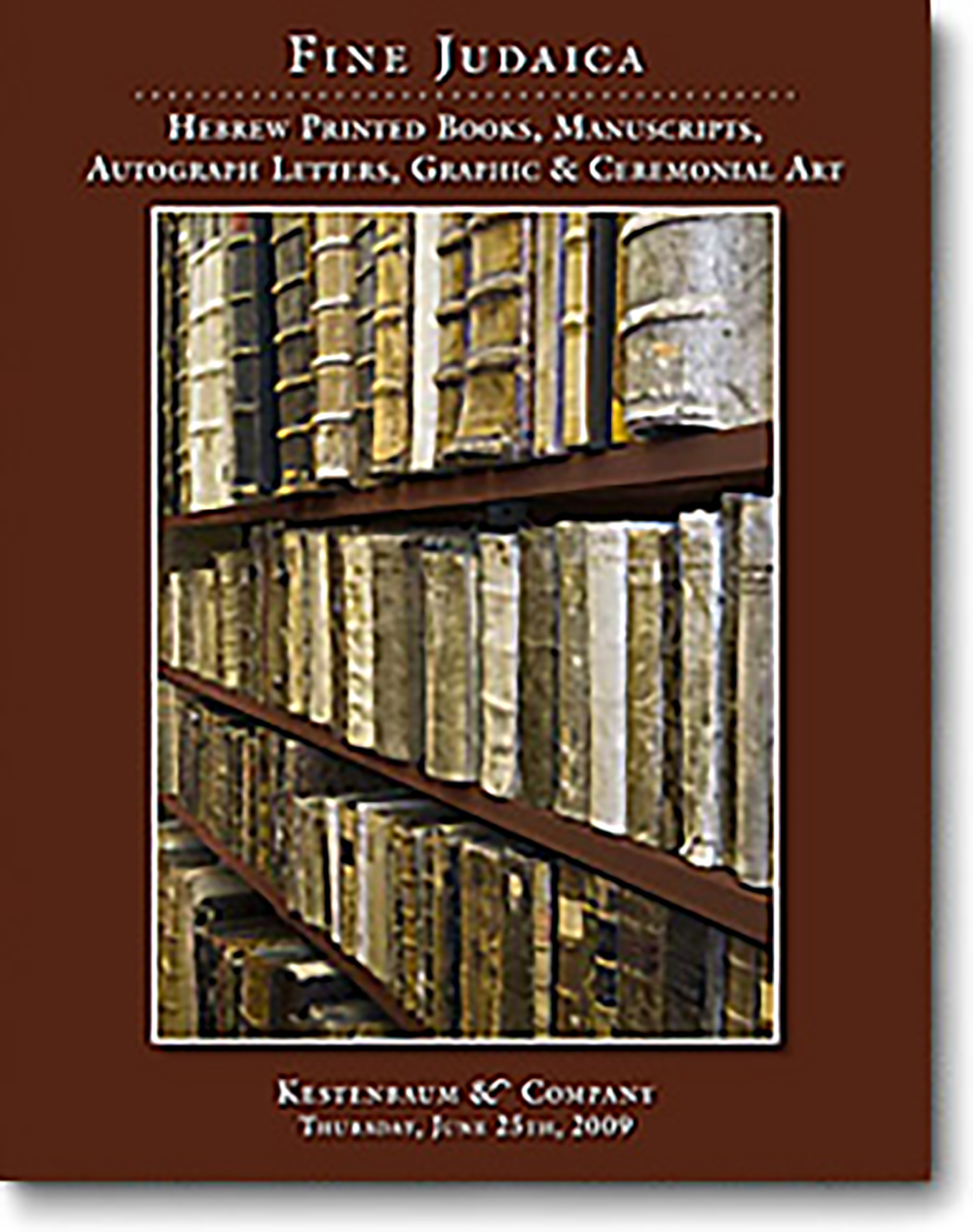YAGEL, ABRAHAM. Moshi'a Chosim ["Savior of those who take refuge"]. Contains Seder Pitum HaKetoreth composed by the Kabbalist R. Jehoseph ibn Shraga of Argenta (see below)

AUCTION 44 |
Thursday, June 25th,
2009 at 1:00
Fine Judaica: Hebrew Printed Books, Manuscripts, Autograph Letters, Graphic & Ceremonial Art
Lot 166
(KABBALAH)
YAGEL, ABRAHAM. Moshi'a Chosim ["Savior of those who take refuge"]. Contains Seder Pitum HaKetoreth composed by the Kabbalist R. Jehoseph ibn Shraga of Argenta (see below)
Venice: Giovanni di Gara 1587
Est: $1,500 - $2,000
PRICE REALIZED $1,400
Moshi'a Chosim was the first published tract of Abraham Yagel (1553-1623). It is tract advising how to survive an outbreak of plague.
Yagel divides the perception of material Reality into three parts: Elementary, Heavenly and Intellectual. Advice is offered how to combat the potential of sickness on each level of Reality. On the physical level, Yagel recommends proper diet, clean water and fresh air. On the Kabbalistic level, he recommends the burning of incense in order to evoke mystical power. Finally, on the Divine level, one should plead for God’s mercy by way of prayer and fasting. See D. B. Ruderman, Kabbalah, Magic, and Science: The Cultural Universe of a Sixteenth-Century Jewish Physician (1988), pp. 15, 32-34.
R. Jehoseph ibn Shraga of Argenta (d.1508-1509) was the doyen of Italian kabbalists of his day. His son-in-law R. Joseph ben Chaim Ya'avetz (known as "HeChasid Ya'avetz") (d.1507), author of a trilogy on matters of belief, is famous for his anti-philosophical stance. The Seder Pitum HaKetoreth, - an example of "practical kabbalah" ("kabbalah ma'asith") - is the only work printed by this great kabbalist, the rest of his literary oeuvre remains in manuscript. See EJ, Vol. X, cols. 243-244
